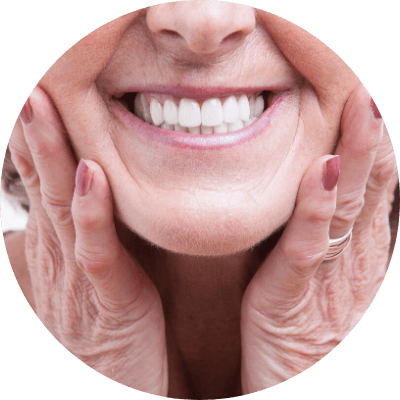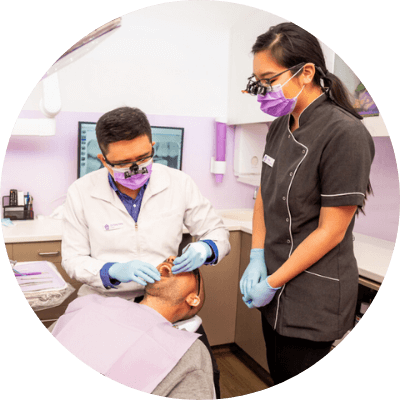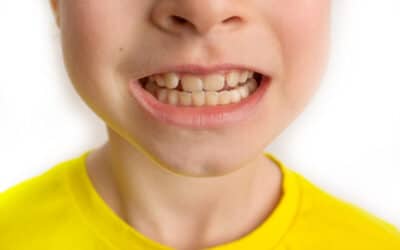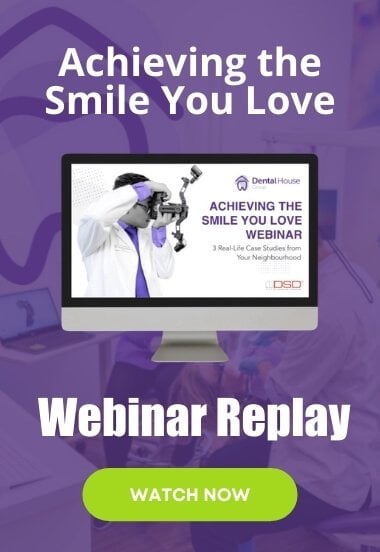Dentistry Has Its Dinosaurs, Its Old Fossils & Its Neanderthals
Dentistry Has Its Dinosaurs, Its Old Fossils & Its Neanderthals

“A Neanderthal who lived 130,000 years ago appears to have carried out some “prehistoric dentistry” in an attempt to deal with an impacted tooth, researchers have said. Teeth found at a site in Krapina, Croatia, at the start of the last century were re-examined by scientists and found to have a number of grooves, scratches and chips. While it is possible there is another explanation, the scientists, from the US and Croatia, said they appeared to be evidence of attempts to use a toothpick to deal with the impacted tooth and the misalignment of another one.”
– Independent.co.uk
Archaeology Opens The Portal To Ancient Dentistry
Hominids are the family, which includes us humans and many of our fossilised ancestors. Neanderthals are included in this grouping and we are finding out a lot more about this branch of the family that died out some 40, 000 years ago. That they had dentistry skills is another wonderful insight coming to us from interpretations of the available archaeological evidence. Really, it should not be that surprising when you thinks about your own teeth and experiences like tooth ache. What do they say, ‘necessity is the mother of all invention’. We all, or most of us, have experienced the painful and distressing problem of tooth ache. This would motivate the majority of us to do something therapeutic about it. Neanderthals have a bad reputation about being all brawn and no brain but this is a fallacy. These heavy browed hominids were creative and managed to survive for some 350, 000 years. Indeed, they have gone on living inside of us via our DNA. The average European may have as much as 2% Neanderthal DNA. Denisovans, another ancient hominid, have shared as much as 6% of their DNA with modern Melanesians.
The Humble Toothache Spawned a Million Years of Dentistry
A Neanderthal dentist is no mere fantasy of anthropologists.
“As a package, this fits together as a dental problem that the Neanderthal was having and was trying to presumably treat itself, with the toothpick grooves, the breaks and also with the scratches on the premolar,” said David Frayer, professor emeritus of anthropology. “It was an interesting connection or collection of phenomena that fit together in a way that we would expect a modern human to do. Everybody has had dental pain, and they know what it’s like to have a problem with an impacted tooth.”
– News.edu.ku
The ubiquity of tooth ache and the universality of pain management reaches across the eons to bring us all closer together amid the trials and tribulations of ordinary life. Not a lot in life is sweeter than a yummy dish to dine on and nothing sucks as much as an impacted tooth. I would confidently posit that hominids have been doing stuff to treat tooth ache for a million years or more. A million years of dentistry may boggle the mind but it is more than highly likely.

Dentists Digging In The Fossil Record
Anthropologists and forensic dentists or odontologists engage in a process somewhat similar to reverse engineering when analysing ancient evidence.
“They found the premolar and M3 molar were pushed out of their normal positions. Associated with that, they found six toothpick grooves among those two teeth and the two molars farther behind them. “The scratches indicate this individual was pushing something into his or her mouth to get at that twisted premolar,” Frayer said.
The features of the premolar and third molar are associated with several kinds of dental manipulations, he said. Mostly because the chips of the teeth were on the tongue side of the teeth and at different angles, the researchers ruled out that something happened to the teeth after the Neanderthal died.”
– Youtube
One of the main features of dental problems like tooth ache is that the sufferer will do whatever it takes to pause the pain. Sticking things in your mouth and probing the painful area is a common response shared across cultures and civilisations. The persistent nature of the painful problem promotes a similarly determined search for relief. You can speculate that the root of dentistry as a profession was likely demanded by the sufferers. It is a healing path thrust upon those able to relieve the pain and root cause.
Rooting Around In The Dental Records
Thinking about root canal dentistry and the level of pain this unleashes it takes one into the realms of torture. The mouth, oral cavity, teeth and their roots trace deep into jaws and the face. It is no surprise that ancient humans developed their botanical medicine capabilities fairly early on. Evidence for this exists in ancient archaeology.
“But there were also signs that he was in severe pain and had taken surprising advanced steps to alleviate it. Dr Rosas said: “We have evidence that this Neanderthal self-medicated. The plaque contained traces of the penicillium fungus, the natural antibiotic from which the drug penicillin is derived, and also poplar. That tree’s bark, roots and leaves all contain salicylic acid, which is used in aspirin and other painkillers. Professor Alan Cooper, of the Australian Centre for Ancient DNA at Adelaide University, who helped carry out the genetic analysis, said the evidence showed Neanderthals were more sophisticated than previously thought.”
– Ian Johnston, Independent, 2017
When you stop and think about how we, as humans, have been dealing with big stuff, like child birth and, perhaps, not so big stuff, tooth ache, naturally for millennia it deserves acknowledgement, I think. Yes, things did go wrong on occasion but there wasn’t much alternative at the time. Today, we are fortunate to be the beneficiaries of our ingenuity and technologies made manifest in the health sector but we should not lose touch with the source – us. Too many people are divorced from their own bodies and are so conditioned to outsourcing responsibility for their physical health that it can be a problem. We should appreciate dentists for the fine work that they do. We would be best served, also, by remembering the role we play in the care and maintenance of our teeth, gums, and body, more generally.
Note: All content and media on the Sunbury Dental House website and social media channels are created and published online for informational purposes only. It is not intended to be a substitute for professional medical advice and should not be relied on as health or personal advice.
Services Mentioned
Related Articles
Some Sweet News For Diabetes Sufferers With Gum Disease
Diabetes type 2 is a scourge for sufferers and those with it know that well. Here is some sweet news for diabetes sufferers with gum disease. A new study performed at the University of Buffalo School of Dental Medicine made some helpful findings in this regard. The...
Bruxism In Children: Is It Influenced By Screen Time And Sugar?
Children gnashing & grinding their teeth asleep in bruxism – a scene from a horror movie. Overstimulation of sensitive minds…
Let The New Year Bring New Commitment To Your Oral Care
If you can be inspired to make one new year’s resolution this year let it be for your dental health. Let the New Year bring new commitment to your oral care in 2024 and beyond. This is no mere dentist’s selfish wish but a call for an understanding about just how...
Having A Smart Mouthguard Is A Life Changing Game Changer
In early 2023, the top league of professional players in Australasia, the NRL, along with Football Australia, acknowledged before a Senate committee the link between head trauma and serious neurodegenerative disease. Representatives from the major Australian contact...













